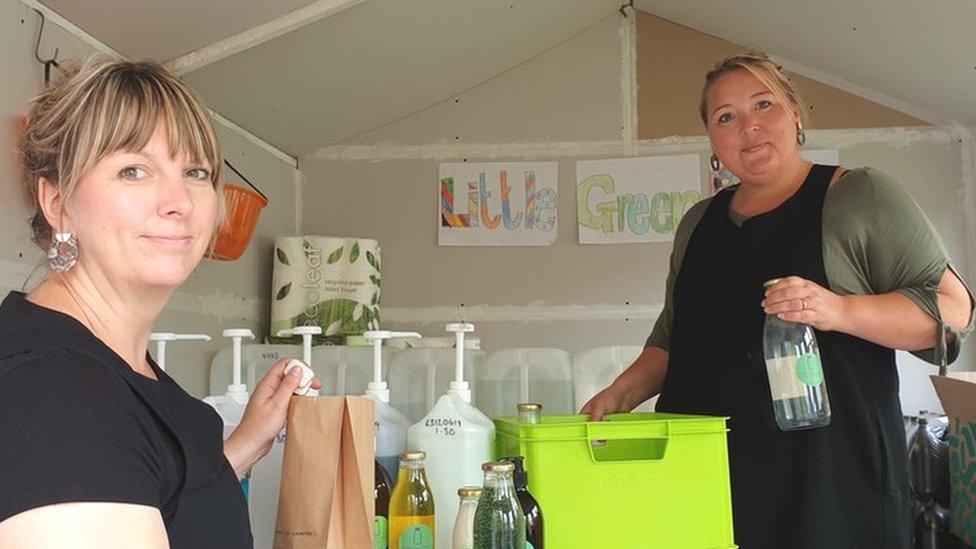Recycling in Wales: Reduction in black bin bag waste
- Published
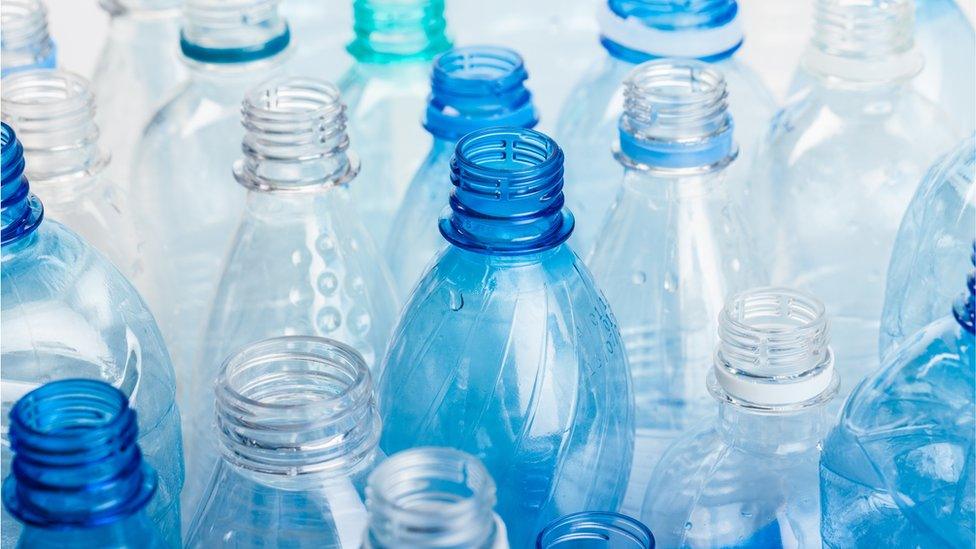
The percentage of waste reused, recycled or composted from July 2018 to July 2019 was 63%, the same as the year previously
The amount of residual household waste produced per person in Wales has reduced by 17% in six years.
This is the type of waste which goes into black bin bags and is not recycled, reused or composted.
From 2012-2013, 217kg was produced per person, dropping to 180kg in 2018-2019.
The percentage of waste reused, recycled or composted from July 2018 to June 2019 was 63%, the same amount as the year previously, a Welsh Government report found.
The Welsh Government said its aim is "to continue our progress towards zero waste as we move towards a more circular economy".
There are types of plastics that can be more difficult to recycle, including black plastics.
This can be because the lasers tasked with sorting plastics cannot detect it, meaning the black plastic can end up in landfill.
Sainsbury's, Tesco, Waitrose and Asda have said they will stop using black plastic in their products by the end of the year.
Dr Cathrine Jansson-Boyd, a consumer psychologist at Anglia Ruskin University, said "consumers are increasingly environmentally aware".
"Many supermarkets are now aware of the fact that consumers feel strongly against the use of black plastic in particular," she added.
Dr Jansson-Boyd said there is "absolutely" a market for reducing single-use plastic waste or making packaging plastic-free.
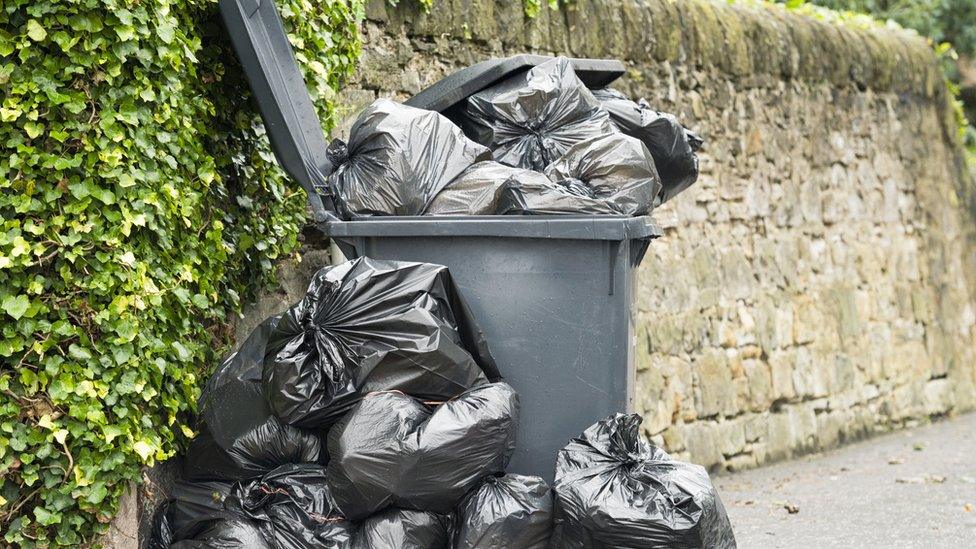
The amount of residual household waste produced per person in Wales has reduced by 17% in seven years
A spokesperson for Delyn, a packaging manufacturer in Ystrad Mynach, Caerphilly, said the percentage of black plastic packaging it produces is now in the single figures.
It said black was cheaper than the clear version, as "black can contain more recyclate of varying quality as it doesn't need to be clear".
"Plastic has a pivotal role to play in extending shelf life, protecting the contents, especially in food and medical environments," the company added.
"The mantra 'reduce, recycle and reuse' sums up where we believe the direction needs to go."
Another Welsh company hoping to profit from this shift is Transcend Packaging, also based in Ystrad Mynach, which has been trading for six months and has 170 employees.
It produces paper straws for McDonalds and has set its sights on the market for replacing black heat-resistant "CPET" trays, commonly used for ready meals.
How recyclable is your food shop?
Sales director Mark Varney said the "widely recycled" trays are made of cardboard with a heat-resistant coating - and no plastics.
He said the firm was talking to seven large potential food business clients around the country. The product is more expensive than traditional CPET trays, but as "the volume goes up the price will come down".
"Sustainable packaging has been around for years, but the difference is now the consumers' want and need for it so the price of the tray isn't the be all and end all," he said.
"Consumers are the ones really pushing behind it."
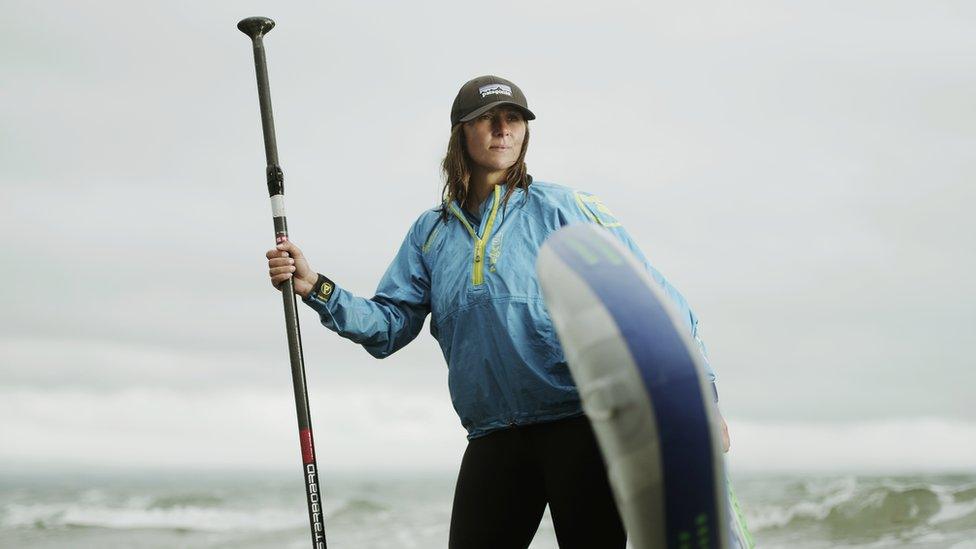
"We have to make a change," says paddleboarder Sian Sykes who spearheaded a campaign to cut plastic waste across Anglesey
Sian Sykes, Anglesey's regional representative for Surfers Against Sewage, said when she moved back to Wales she found "every time I was walking on the beach I saw the tide bring in new plastic".
She paddleboarded around Wales in 2018 to raise awareness of plastic pollution.
Ms Sykes advised those who want to make changes to get reusable items such as cups, bottles and cutlery, and urged people to "make a pledge" and replace one single-use plastic item with something reusable.
"We are making a difference, we need to keep the momentum on," she said.
"Convenience of today will be at the expense of the future."
- Published4 April 2019
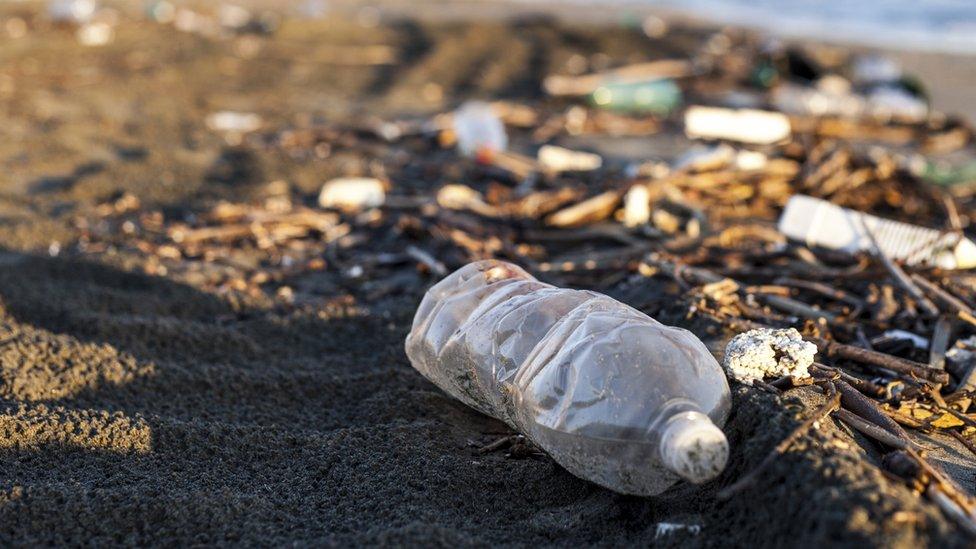
- Published18 December 2018
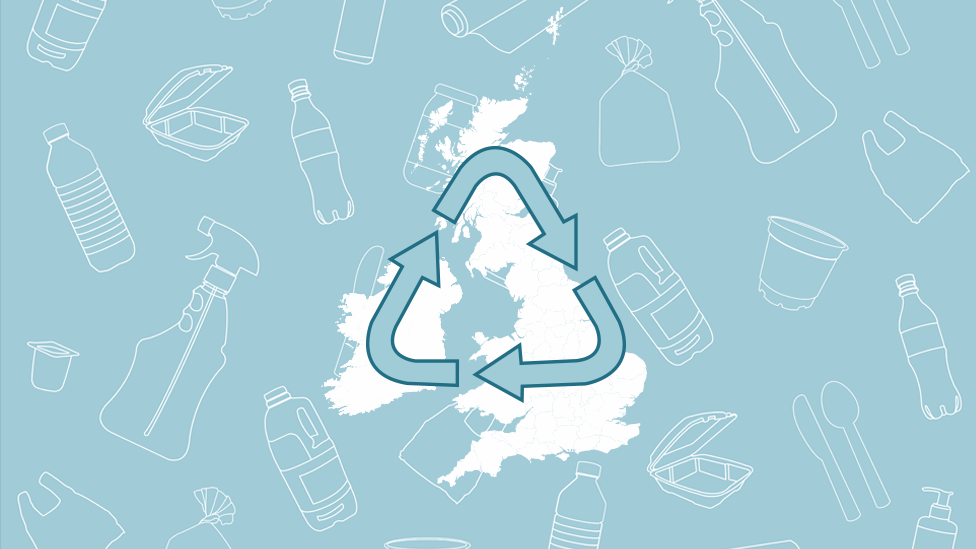
- Published18 August 2019
